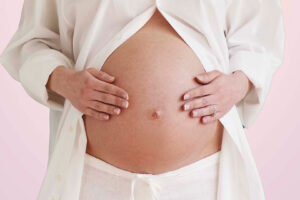We know that many women are waiting longer than ever to start a family. The average age of first-time mothers rose to 26.3 in 2014 from 24.9 in 2000, according to the National Center for Health Statistics.
We also know that, biologically speaking, the longer a woman waits, the more difficult it becomes for her to conceive a child.
That’s why it is never too early for women to think about fertility as part of their overall health — whether they’re planning to start a family next year or nowhere in the foreseeable future.
A commitment to good health is also critical once you become pregnant. Pregnancy is a major stressor on the body – it stresses the heart, the lungs, the vascular system, the kidneys and potentially every single organ in the body. By taking care of yourself now, you can help ensure a healthier pregnancy — whenever you’re ready.
Start in Your Teens and 20s
Vaccinate: The American College of Obstetricians and Gynecologists recommends routine vaccination with the human papillomavirus (HPV) vaccine at a target age of 11 to 12 and up to age 26. The vaccine can help prevent cases of cervical cellular abnormalities (abnormal pap smears) and cervical cancer. Treatment of cervical cellular abnormalities can have a negative impact on future fertility.
Establish care: We recommend teens and women establish care with an OB/GYN as soon as they become sexually active or at age 21, at the latest. Regular OB/GYN visits can help detect issues such as hormonal imbalances, infections, abnormal pap smears, uterine anomalies, ovarian cysts and endometriosis — all of which may affect future fertility. Early detection offers a chance of treating these problems before they become more severe. Even if treatment is not necessary, knowing about potential problems can help you better plan for the future.
Take prenatal vitamins: All sexually active women of reproductive age should take a prenatal vitamin or folic acid supplement, even if they are practicing birth control. Vitamins can help prevent spinal abnormalities in a fetus, which occur early in a pregnancy when many women may not even know they’re pregnant.
Consider egg preservation: At age 35 and older, women are at an increased risk of having a child with a chromosomal abnormality. Women who want or need to delay childbearing and who would like to decrease this risk, may do so by egg preservation. If egg preservation is a viable option for a woman, she should do so as early as possible, preferably in her late 20s or early 30s.
Healthy Habits at All Ages
Avoid exposure to chemicals: You want your lawn or garden to look great, but take caution when using pesticides and herbicides to kill weeds and bugs as prolonged exposure may disrupt menstrual cycles and decrease fertility.
Travel with caution. Women who are pregnant or thinking about becoming pregnant should avoid travel to areas known to have widespread cases of the mosquito-borne Zika virus. If you do travel to these areas, wait at least six months before trying to conceive a child.
Stop smoking. Infertility rates among women who smoke are twice as high as nonsmokers, according to the American Society of Reproductive Medicine. What’s more, studies have shown that women who smoke cigarettes every day experience menopause one to two years earlier on average.
Control your weight. Obesity can lead to a wide range of problems for expectant moms, including infertility, diabetes and hypertension. It also puts you at a greater risk for fetal anomalies.
Practice safe sex. Sexually transmitted infections such as chlamydia are among the leading causes of infertility. Chlamydia can lead to the development pelvic inflammatory disease (PID), which can cause blockages of the fallopian tubes and related infertility.
As with all aspects of health, the habits you develop now can make a lasting impact — in this case, on your future ability to start or expand your family.
When You’re Ready
CentraState Medical Center’s Star and Barry Tobias Health Awareness Center offers a full spectrum of health and wellness programs designed to help future parents achieve optimal health prior to conception and beyond. Visit centrastate.com/healthprograms for a complete listing of classes or call 732-308-0570 for personalized program recommendations.
For growing families, the First Impressions Maternity Center at CentraState Medical Center gives unique and special treatment to every mother, baby and family. Staffed by board-certified OB/GYNs, neonatologists and anesthesiologists, the center offers private labor and delivery rooms as well as home-like postpartum rooms.
 Borislava Burt-Libo, DO is a board-certified OB/GYN and on staff at CentraState Medical Center in Freehold. She can be reached at Women’s Physicians and Surgeons by calling 866-CENTRA7.
Borislava Burt-Libo, DO is a board-certified OB/GYN and on staff at CentraState Medical Center in Freehold. She can be reached at Women’s Physicians and Surgeons by calling 866-CENTRA7.





